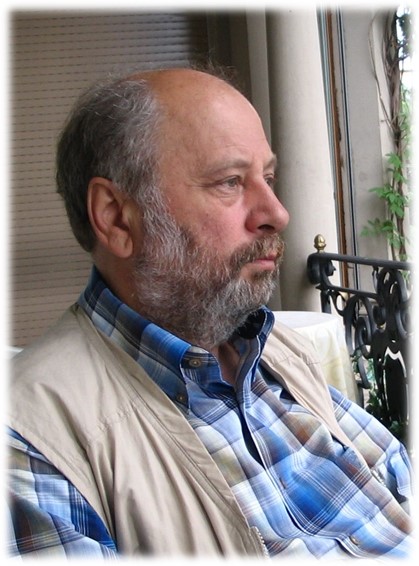Mikadze Yuri V.

Dr. Sci. (Psychology)
Professor, Department of Neuro- and Pathopsychology, Faculty of Psychology, Lomonosov Moscow State University.
-
Recovery of consciousness: opportunities for neuropsychological assessment and rehabilitationLomonosov Psychology Journal, 2021, 3. p. 102-128Fufaeva Ekaterina V., Mikadze Yuri V., Cherkasova, A.N., Kovyazina, M.S. , Baulina Maria E., Varako, N.A., Skvortsov, A.A., Zinchenko, Yu.P.read more3705
-
Relevance. Neuropsychological rehabilitation and assessment are the priority tasks in practice of a clinical psychologist. The modern rehabilitation system can be considered as a partnership between patients, their families and different specialists participating in the rehabilitation process. The existing approaches to neurorehabilitation are aimed at the earliest possible intervention. It`s of particular importance for patients with disorders of consciousness, whose number has been increasing in connection with the development of medicine in recent decades. This leads to the need to develop tools for specialized neuropsychological assessment and methods of neuropsychological rehabilitation of patients in the early stages of recovery of consciousness.
Objective. To summarize neuropsychological diagnostic and rehabilitation experience of working with patients with disorders of consciousness after brain lesions.
Methods. We analyze practical guidelines, applied research and our own hands-on experience of working with patients with disorders of consciousness after brain lesions.
Results. Based on the analysis, the recommended diagnostic tools are formulated that can be used to identify the current level of consciousness and to assess various parameters of psychic activity of patients with disorders of consciousness. In addition, the main directions and neuropsychological methods of rehabilitation work recommended for recovery of consciousness and continuing to be developed now are highlighted.
Conclusion. A new diagnostic and rehabilitation material is presented, which is recommended for use in neuropsychological practice by practicing clinical psychologists with patients with disorders of consciousness after brain lesions.
Acknowledgments: we would like to express our great appreciation to Professor Galina Ivanova, also Valentina Bykova and Olga Maksakova for comments that greatly improved the manuscript.
Keywords: clinical psychology; neuropsychology; disorders of consciousness; neuropsychological assessment; neuropsychological rehabilitation DOI: 10.11621/vsp.2021.03.06
-
-
Some methodological issues of qualitative and quantitative analysis in neuropsychological assessment.Lomonosov Psychology Journal, 2012, 2. p. 96-103read more5245
-
The article considers the role of different approaches to neuropsychological assessment, i.e. qualitative and quantitative analysis, from the point of view of those goals which can be put before neuropsychology in clinical practice.
Keywords: syndrome analysis; psychometric tests; structure of the deficit; the severity of the impairment; qualitative and quantitative assessment of results
-
-
-
Introduction.
Keywords: introduction
-
-
International conference «Mental recovery after traumatic brain injury: A multidisciplinary approach»Lomonosov Psychology Journal, 2008, 3. p. 128-135read more4301
-
International conference «Mental recovery after traumatic brain injury: A multidisciplinary approach».
Keywords: congress
-
-
Higher psychical functions disorders in children with partial epilepsyLomonosov Psychology Journal, 2008, 3. p. 80-90read more4682
-
Assessment of higher psychical functions in children with partial epilepsy is related to the important problem of accurate diagnosis and prognosis. Different types of higher function disorders as a result of various epileptogenic foci are described. Age-related distinctive features and left=right lateralization specificity of observed neuropsychological syndromes are discussed. The primary interest is put on the verbal and visual memory.
Keywords: neuropsychological assessment; partial epilepsy; child age; adolescence
-
-
The term “factor” in the works by A.R. LuriaLomonosov Psychology Journal, 2007, 2. p. 104-108read more5771
-
The meaning of “factor” in the works of A.R. Luria is analyzes. Relations of this concept and fundamental theoretical problems of neuropsychology are defines. On the basis of these relations is reconstructed for the most organic for A.R. Luria's texts interpretation of the concept “factor”.
Keywords: factor; tasks of neuropsychology; structural element of mental processes; physiological mechanism; localization; area of the brain
-









